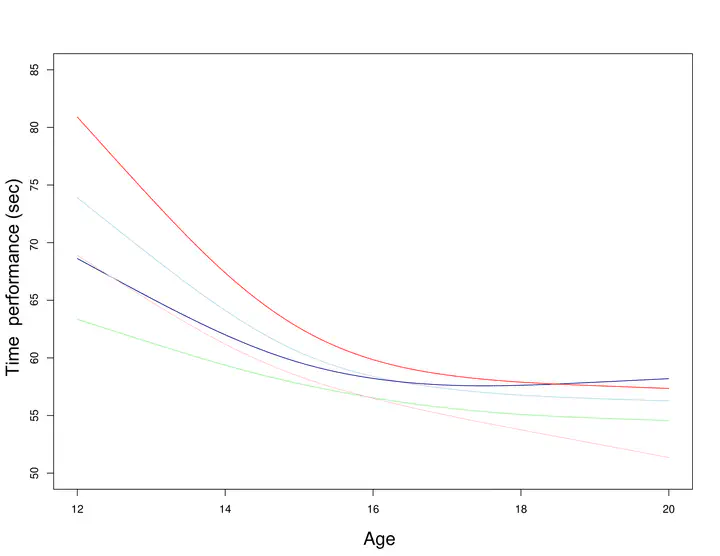Functional Data Analysis in Sport Science: Example of Swimmers’ Progression Curves Clustering

Abstract
Many data collected in sport science come from time dependent phenomenon. This article focuses on Functional Data Analysis (FDA), which study longitudinal data by modelling them as continuous functions. After a brief review of several FDA methods, some useful practical tools such as Functional Principal Component Analysis (FPCA) or functional clustering algorithms are presented and compared on simulated data. Finally, the problem of the detection of promising young swimmers is addressed through a curve clustering procedure on a real data set of performance progression curves. This study reveals that the fastest improvement of young swimmers generally appears before 16 years old. Moreover, several patterns of improvement are identified and the functional clustering procedure provides a useful detection tool.